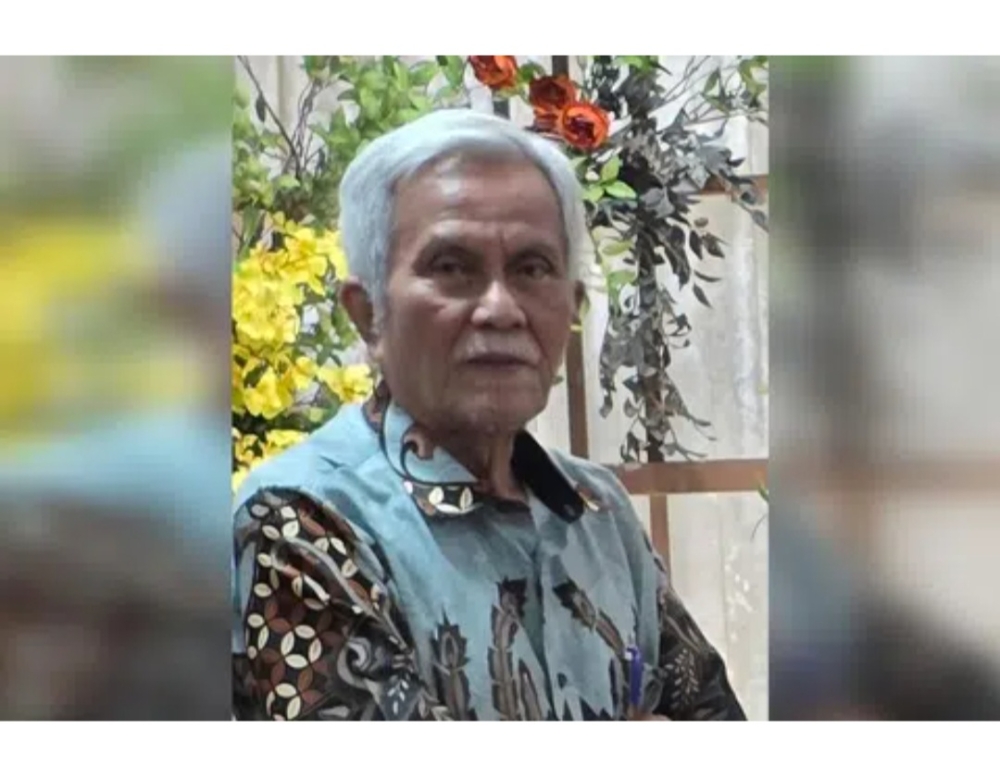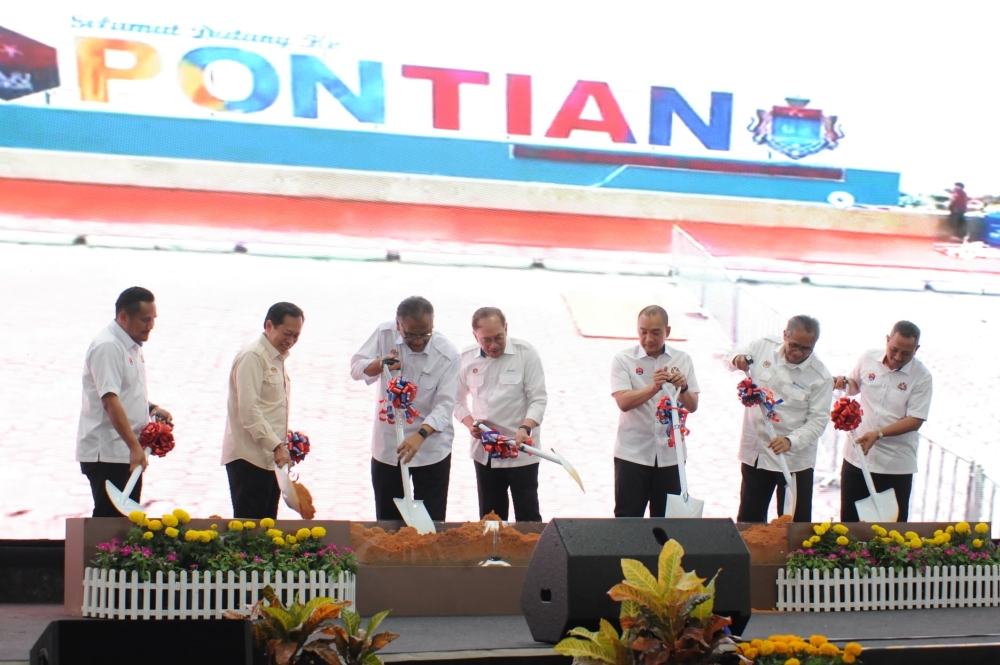KUCHING, May 19 — In the 2013 general election, DAP’s Mordi Bimol, 28, had been a new face who came in third in a four-cornered fight for the Mas Gading parliamentary seat.
In 14th general election, he doubled the votes he previously secured in the Dayak-majority seat and defeated Barisan Nasional’s Datuk Nogeh Ngumbek, a deputy minister in Datuk Seri Najib Razak’s Cabinet.
Mordi, who graduated from Universiti Malaysia Sarawak in aquatics science resources, received 12,771 votes in the straight fight to win by a comfortable margin of 3,024 votes.
“I am happy to have won,” DAP’s first Sarawak native elected representative told Malay Mail, adding: “I had already promised myself this will be my last election. I decided if I lost, I will not contest anymore.”
Mordi is among six newly elected parliamentarians who finally broke through BN’s seemingly impregnable Dayak-majority seats, the coalition’s so-called fixed deposits.
Besides Mas Gading, BN had lost Puncak Borneo, Lubok Antu, Saratok, Julau and Selangau.
Dayaks account for about 40 per cent of Sarawak’s more than 1.2 million registered voters.
Of the 31 parliamentary seats in Sarawak, 13 are considered Dayak-majority seats, six are Chinese-majority seats and the rest are Malay/Melanau seats.
All the Chinese-majority seats — generally urban seats contested by BN’s Sarawak United People’s Party (SUPP) — are now occupied by Pakatan Harapan, while Parti Pesaka Bumiputera Bersatu (PBB), the state BN anchor, has control over the Malay/Melanau and several Dayak seats.
Notably, this election is perhaps the first since the 1980s in which PBB did not win with a clean sweep as it lost in Puncak Borneo, a Dayak-majority seat.
Most of the Dayak seats were contested by BN’s Parti Rakyat Sarawak (PRS) and Progressive Democratic Party (PDP). PRS lost three of six contested, while PDP lost two of four.
At the final tally, BN won 19 seats, PH 10 and two seats, which were Dayak seats, were won by Independent candidates. Both Independent parliamentarians have since joined PH.
It is obvious that there is a swing in Dayak votes away from Barisan but the reasons for this sea change are varied, though not entirely unexpected and they certainly did not happen overnight.
This much is clear though, the state BN has three years before the state polls to clean up their act if they want to stay in power.
Mordi believes that in rural Dayak areas, there was a growing political awareness and he felt that this was one of the main reasons for Pakatan’s success.
“Rural Sarawakian voters are not afraid to express how they feel through their votes anymore,” he said, adding that he had spent the last seven years raising political awareness in Mas Gading and educating people about their rights.
He said Mas Gading could be considered a semi-rural seat as it is less than an hour from the state capital here, and like their urban neighbours, voters were also affected by national sentiments.
Mordi pointed out that issues like public infrastructure and utilities were still a major factor.
“One of the biggest dissatisfaction among the people is the unreliable water supply,” he said.
PDP vice president Datuk Paul Igai told Malay Mail that the party was surprised that Nogeh, their secretary general, had lost so badly.
“Why did he lose with a massive 3,000 votes? We thought that we might lose but not with that margin,” he said.
He felt that a major issue that caused BN’s defeat in Dayak areas — not just Mas Gading — was the Goods and Services Tax (GST), not so much the controversies like 1MDB and the allegations against Najib and his wife, Datin Seri Rosmah Mansor.
Asked if it was possible that rural voters had just grown tired of BN’s promises, he said: “It’s possible. Like water (supply), we said in 2013 that they will get water by 2016 but they didn’t. Now in 2018, we said 2020. Maybe the voters felt that we were lying to them.
“(But) maybe they just wanted to experience some changes, although I don’t know whether it is the right or wrong thing to do.”
That said, he revealed that there had been infighting going on between BN supporters in Mas Gading and Saratok, the two seats that PDP lost.
“That could have been a factor too,” said Paul. PDP’s Subeng Mula lost to PKR’s Ali Biju in Saratok by a slim margin of 989 votes.
Asked if he would still consider Dayak seats BN’s fixed deposit, Paul said tongue in cheek: “Yes, but the interest would be much higher.”
Former senior lecturer of social sciences at Unimas, Dr Andrew Aeria, also said infighting was a reason why PRS lost Lubok Antu, Julau and Selangau.
He said there was deep dissatisfaction among PRS supporters with the rough and uncaring manner in which ex-incumbent MPs Datuk Joseph Entulu, who was the deputy president, and Datuk William Nyallau, the vice president, were treated by party president Tan Sri Dr James Masing.
“Then the party fielded relatively unknown new candidates in Lubok Antu and Selangau,” he adds, referring to former legal officer Robert Pasang Alam in Lubok Antu and former corporate lawyer Rita Sariman Patrick Insol in Selangau.
Pasang lost to an Independent Jugah Muyang while in Selangau, Sarimah was defeated by state PKR chief Baru Bian, while PRS secretary general Datuk Joseph Salang Gandum failed to retain his Julau seat when he was defeated by an Independent Larry Sng Wei Shien.
Aeria said other factors contributing to the BN’s defeat in the three seats as well as in Puncak Borneo were a deep unhappiness over costs of living, GST, low wages and broken development promises
“The rural voters were also aware of the excesses of the former prime minister (Najib) and wife.
“These rural voters also have access to critical and insightful information from their family members working in Semenanjong and other cities via WhatsApp.
“In Puncak Borneo, Barisan lost due to unknown and tarnished candidate due to an alleged involvement in some land cases, old people not familiar with the new BN candidate, young people angry about PTPTN and other loans, GST, high cost of living, poor wages and again spread of news via WhatsApp.
“This election was really about who should be in parliament to provide a good check on Executive Excess,” Aeria said.
Sarawak Dayak Graduates Association (SDGA) president Dr Dusit Jaul believes that land was a major point that contributed to BN losing in rural areas, like Selangau.
“The BN leaders are perceived to be “useless” in resolving this issue,” he adds.
In Saratok, PKR’s victory is mainly due to the effectiveness of its candidate Ali Biju who is loved by many in his Krian state constituency.
Krian is one of the three state constituencies under Sararok parliamentary constituency.
“Above all, the people just got fed up with the Barisan whose brand is no longer saleable,” he says.
Dayak National Congress (DNC) president Paul Raja believes that PRS’ loss is partly due to split in their supporters in Lubok Antu, Julau and Selangau after the dismissal of some party leaders.
“PH was smart in capitalising on it to welcome the support of the disgruntled members,” Raja says, adding: “I also observed the young Dayaks in going to the ground to assist PH in campaigning even though they are not party members.
“It is also the awakening of the Dayak voters in the rural areas,” he says.
On the loss of Puncak Borneo to PKR, Raja says it could be due to a few reasons, one of which was the candidate himself, Genot anak Senil.
“His credibility was questioned over a controversial land issue and PH capitalised on this,” Raja says, referring to a police report being circulated during the campaign period that Genot alienated NCR land in one of the village to members of family.
“But overall PH is now making inroads in the rural areas with voters becoming more knowledgeable about their rights and the young voters’ involvement,” he said.
Save Sarawak Rivers Network (SAVE Rivers) chairman Peter Kallang said there were a number of possibilities why PRS lost three Dayak seats and PBB in Puncak Borneo.
He said these included the reactions of the Dayaks to the negative political and social environment that they are living in, like lack of development, NCR land issues and marginalisation of the indigenous communities by the government.
He said after so many decades of the BN’s rule, nothing much have been done to uplift the living standard of the rural communities.
“In the end, they give their support to the Opposition hoping to see better things ahead in future,” Kallang says.
He believes that SUPP lost in all the urban seats as the town folks are so much more exposed to the increased cost of living and their dislike for Najib and his wife.
Social activist Datuk Wan Abdillah Edruce said the wrong choice of candidates was the main reason contributing to the defeats of the Barisan in Lubok Antu, Julau, Selangau and Puncak Borneo.
He said it seemed that BN ignored the voices of the people by nominating candidates not of their choice.
“This is the lesson that the BN must learn for the coming state election in 2021,” Wan Abdillah said, adding that ground sentiments from grassroots have been ignored.

















